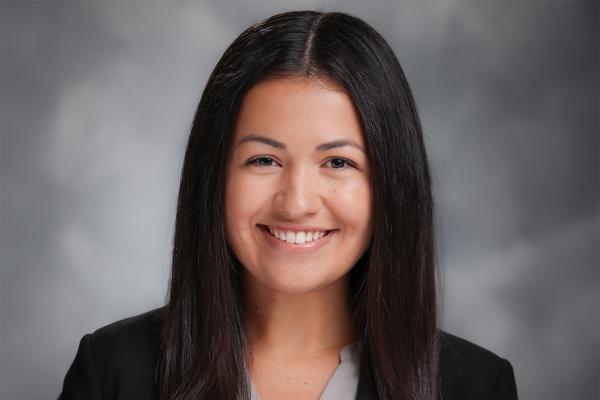
Duke Occupational Therapy Doctorate (OTD) students complete a culminating capstone project and 14-week experience during their third and final year of the program. The capstone aims to draw on Duke OTD courses and experiences to collaborate with and support a community partner and gain in-depth knowledge in a specific practice area. Third-year student Maddie Lira shares how her project is progressing.
My capstone project is a qualitative research study that explores the lived experiences of university students with invisible disabilities or illnesses. As part of the study, students will share photos representing their personal experiences or a meaningful item, place, or hobby. The images will be used in a photo-elicitation interview to facilitate open dialogue on how an invisible disability can impact everyday occupations, roles, and overall well-being.
I am partnering with two outstanding Duke OTD faculty members—my mentor, Cambey Mikush, OTD, OTR/L, and my principal investigator, Sarah Jean Barton, ThD, MS, OTR/L, BCP. I have also partnered with Duke’s Office of Learning Environment and Well-Being (Le Well) administration. Be Well offers numerous mental health and wellness resources for Duke SOM students, and I recommend checking them out if you haven't already!
Why I Chose this Project
My inspiration stems from my personal experience as an undergraduate student navigating the demands of academics and life while also managing the onset of an invisible health condition. During that time, I often felt overwhelmed and struggled to find support. The motivation for my capstone project then emerged, and it began to take shape throughout the capstone courses during my second year in the program.
While reviewing literature and conducting my needs assessment, I discovered gaps in higher education settings regarding support for students with invisible disabilities inside and outside the classroom. Occupational therapy can help fill these gaps and offer holistic support to disabled learners that extends beyond classroom accommodations and traditional biomedical approaches. I also believe there can be therapeutic benefits to sharing personal stories and feeling seen as a learner with an invisible disability.
The Progress of the Project
Before my 14-week capstone experience began, I submitted a Duke (IRB) application that outlined my research study and relevant materials. My IRB was approved (woohoo!), and I started recruiting students in week three.
At the start of week five, I have gathered survey responses and am beginning the initial research meetings. The next phase involves the photo collection process and the semi-structured photo interview. Once my research is complete, I plan to share my findings with Duke collaborators and the community and submit a paper for publication!